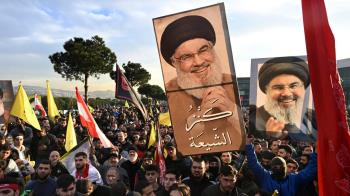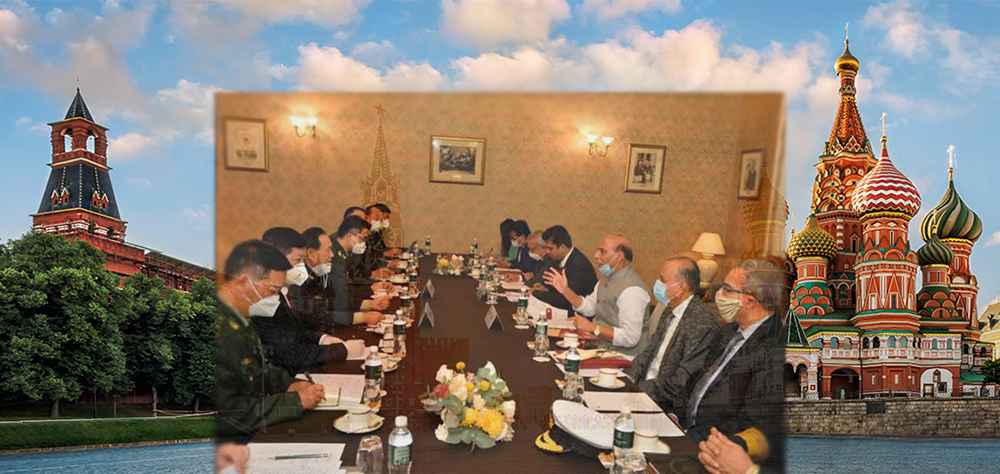Alwaght- Recently, Moscow, the Russian capital, witnessed the end of the meeting of defense ministers of the Shanghai Cooperation Organization, the Commonwealth of Independent States and the Collective Security Treaty Organization. As it is clear from the guests and participants of the meeting, this conference was organized with the focus on security and defense issues. The meeting was attended by defense ministers from 13 countries, who, according to the Russian Defense Minister, as chairman of the summit, discussed, in addition to a joint statement on counterterrorism and international extremism, ensuring international and regional security for all members, unity of efforts to prevent war and armed conflict, and also further strengthen military cooperation in the current situation.
An important issue regarding the reason for holding this meeting was to pay attention to the composition of the members of the three important regional organizations and to cover an important geographical area from Central Asia to East, South and West Asia. Such an issue raises the question that whether advancing these goals at this vast geographical level with diverse geopolitical and security complexities is realistic or not? Like any successful multilateral international cooperation, there is doubt that, whether there is a broad alignment in drawing security and military priorities among participants in order to actually hope for the implementation of the agreements to be a success?
One of the priorities is definitely the cooperation to combat transnational terrorism, especially in newer forms such as cyber and biological attacks. The devastating effects of war and insecurity in parts of the Middle East, particularly as a result of trans-regional interventions have paved the way for the spread of terrorism and extremism in recent decades, and have overshadowed the situation of the countries present at the summit in various ways. The rise of extremism in recent years in Central Asia, the Indian subcontinent, and even East Asia, which has been fueled by some geopolitical rivalries, has prompted governments to work together to address the phenomenon. Paying attention to the issue of Afghanistan, which has provided decades of war and insecurity for the growth of terrorist groups, indicates such a priority.
On the other hand, the cyber field is now one of the most important gateways for the expansion of propaganda activities of terrorist groups and the development of extremist ideas, which urgently require extensive international cooperation to be able to counter such issues. Accordingly, in the final statement, it was suggested that in late September, during the strategic exercise of the command headquarters entitled "Caucasus-2020", joint measures be taken in the fight against terrorism.
The biological threats following the outbreak of the Coronavirus are now increasingly being addressed in the area of security cooperation. Unquestionably, it has been taken to consideration among the participants of the meeting, regardless of political and geopolitical differences, that there is now a need to exchange experiences and increase cooperation to control the virus. In this context, Russia and China, as the focus of the Two Commonwealth and Shanghai Cooperation Organization, have made significant progress in combating the spread of the virus and even discovering anti-coronavirus drugs.
But another priority of the participants' security cooperation is the undeniable effects of bilateral conflicts on the interests of other countries in the world of international entanglements. In this regard, one of the issues of concern is the border disputes between members and the collective effort to establish diplomatic solutions to avoid war.
For example, the meeting addressed the issue of recent border conflicts between China and India as two emerging giants in the field of international politics and economy. Clashes between Indian and Chinese troops in disputed eastern Ladakh region have erupted in recent months. Another issue of interest is the escalation of disputes between India and Pakistan over the Kashmir issue after the Indian government took action to abolish some of the autonomy privileges of the disputed region with Pakistan.
Recent border tensions between Azerbaijan and Armenia over the Nagorno-Karabakh Autonomous Region are other security challenges that, in addition to threatening regional peace, stability and security, will naturally have detrimental effects on the various countries participating in the summit. In one case, at the regular meeting of the Council of Defense Ministers of the Commonwealth of Independent States (CIS) and the Shanghai Cooperation Organization (SCO), Azerbaijan's Defense Minister Maj. Gen. Zakir Hasanov claimed that Yerevan's official goal was to damage relations between Azerbaijan and other Commonwealth of Independent States (CIS) members, pointing to recent tensions with Armenia in the Tovuz region. Referring to the fact that after the recent tensions in the Nagorno-Karabakh region, Baku accuses Russia of supporting Armenia.
In this regard, it can be seen that after this meeting, the Indian Ministry of Defense announced on Saturday in a statement that it has reached an agreement with China to reduce tensions along the disputed borders.



























